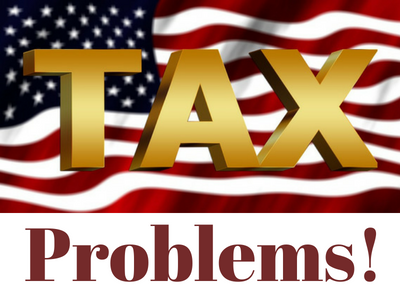It’s summer; our minds are on vacations and weekends with friends and family. Many businesses are slower, including accountants providing CPA (certified public accounting) services.
One of the most costly tax-time mistakes small business owners make is not knowing the right thing to do. So, when do you think is the best time to get your taxes in order? Now, while the pace is slow and you’re not pressured to meet filing deadlines.
Tax Changes for 2018
Individuals
- The write-off for state and local tax (SALT deduction) has been capped at $10,000.
- You can still write off 100% of property and sales tax on a business schedule if you have rentals or are self-employed.
- Moving expenses are no longer deductible.
Businesses
- S Corporations continue to be watched by the IRS. Revenue agents will be conducting audits at shareholder level to ensure basis is tracked properly.
- Since many individual are not contributing to retirement plans, small businesses will get a $500 tax credit for establishing automatic enrollment in 401k or IRA retirement plans for employees.
Common Mistakes
 If you’re a small business owner, you may think DIY (do-it-yourself) taxes save money, but…probably not. In fact, DIY taxes can cost you hundreds or even thousands of dollars every year. Here are some common tax-time mistakes business owners make:
If you’re a small business owner, you may think DIY (do-it-yourself) taxes save money, but…probably not. In fact, DIY taxes can cost you hundreds or even thousands of dollars every year. Here are some common tax-time mistakes business owners make:
1. DIY filing – You should have an accountant/CPA for taxes if only to keep you compliant with ever-changing tax regulations. No matter how small your business, you’ll kick yourself when you wing it a few years with DIY taxes, then seek an accountant and hear, “I could have saved you some money when you started…” A recent survey revealed 89% of small businesses realize additional financial gain and/or savings with an accountant.
2. Software illiterate – Accounting and business software comes in all shapes and sizes. Find out what others use and speak with your accountant about software that could better-organize your business. Most CPAs prefer Quickbooks desktop version, but there are other types of software which work well for freelancers, solopreneurs, or smaller businesses.
3- Tax filing extensions – It’s better to file and pay something than to file for extensions. You can avoid penalties and lower the amount that, eventually, you must pay.
4. Ignoring 1099s and not sending them out by required date – If you don’t have the tax identification and addresses of your service providers/vendors, you may be losing some deductions and also flagging yourself for an audit. A 1099 Misc is a form you file with the IRS to report expenses paid to vendors during the year. All 1099s should be delivered by January 31. The filing threshold is $600 in aggregate.
5. Missing out on important tax saving deductions. For information about the most missed deductions (personal and business), read here:
6. December/January tax focus – You should think about taxes all year. “Every single transaction in business has tax consequences,” says Sean Core, CPA. Mid-year during our slow summer season, is one of the best times to get your books up-to-date because you have more time. Additionally, accountants are less busy and have more time to spend with you. Why not begin organizing for tax-time now?
7. Disorganization – Receipts in shoeboxes does not constitute “due diligence.” Try scanning those receipts and filing them electronically. (Don’t forget to backup.)
Today Isn’t Too Soon
We understand this market and the area-specific challenges of our local Arizona businesses. Contact Sean Core CPA for more information.
Better yet, call 480.626.5043 to schedule an appointment. Our conveniently located office is at 565 W Chandler Blvd, Suite 112, Chandler. (We are conveniently located “on the border” of Chandler, Gilbert, Mesa, and Tempe).
Sean Core CPA PLLC specializes in small- to mid-size Arizona companies.
We want to work for you.

